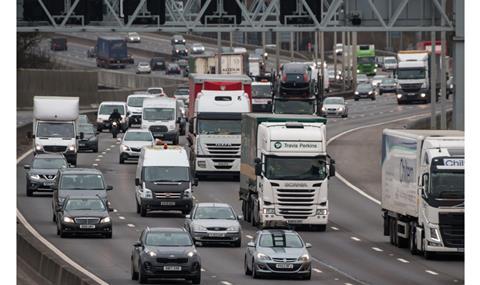
A senior figure at one of the UK's biggest logistics groups has claimed the Covid-19 pandemic will lead to more multi-user transport operations as companies look to cut costs.
“You’re going to see more shared user delivery networks,” the source, who did not wish to be named, told motortransport.co.uk.
“Does House of Fraser need to go on a separate truck to Debenhams? Does Debenhams have to be on a separate truck to John Lewis? If they’re all going to the same town why don’t they share the trucks?
“The battle isn’t on the truck, the battle is on the customer service in the shop. So I think we’ll see a growth in multi-user transport operations."
The source claimed that even before the start of the pandemic many trucks were “running half empty around the country”.
“Take one clothing retailer that has products for about 8-10 stores on a truck,” he said. “By the time it gets to somewhere like Lincoln, it’s only a tenth full. So why can’t every retailer on that town’s high street be consolidating on one vehicle?”
The source also claimed that the surge in online sales meant many consumers would request free parcel courier costs by using click and collect.
“So unfortunately the retailer has now got to increase his frequency of delivery to the shops to service his click and collect clientele,” he explained. “The government wants to encourage click and collect to reduce the white vans around the streets. That goes against the grain in terms of retailers needing to service their shops. Something has got to give there.
“They’ll have to get rid of their own dedicated fleets and stick it on the courier networks or they’ll have to sell out and say that when they service that store on Tuesday and Thursday they’ll use their own truck, then send it by DPD on Monday, Wednesday and Friday because it’s not viable to do it seven days a week. So things like that will change the landscape.”
He agreed that the impact of the pandemic had “fallen into the hands of the big parcel carriers”.
“Three things have fallen in their favour,” he said - “every delivery gets done first time because everyone’s at home, they can ring the door bell and run, and the roads are so light that the average courier is doing 150 drops a day instead of 120.”
His advice for drivers at risk of losing their jobs, he said, was to “go and work for DPD”.
“They do at least employ their drivers with holiday pay and sick pay etc. I do think the government will have to intervene in the treatment of self-employed owner drivers with a white van. There will be some scrutiny as to whether it’s legal for one man to work six days a week for one company, be forced to rent his van from that company at inflated rates and not be on some kind of sick pay and holiday pay scheme.”
Asked if he agreed with the latest industry surveys suggesting around 16% of operators faced collapse within weeks, he said: “Definitely above 10% will go bust. Unfortunately across all sectors, there’s ten million people furloughed, 25% haven’t got a job to go back to. Their companies haven’t got rid of them because the government is softening the blow.
“But a lot companies are carrying a lot of fat and firms will use this to say ‘do we really need all these people?’ A lot of companies will cut back. This industry is working on the thinnest margins.
“But what will happen is there will be pre-pack administrations - they’ll start up Joe Bloggs Haulage Mark Two and clear a few debts. The biggest creditors are going to be HMRC and the Inland Revenue. I worry as much for the health of the economy as for the individual companies.
“There will be winners and losers,” he concluded. “Acquisitions will be rife after this period. The ones licking their wounds that can’t see a future will be happy to flog their businesses and run for the hills, and other companies that are more aggressive will say let’s get some bargains and grow.”














